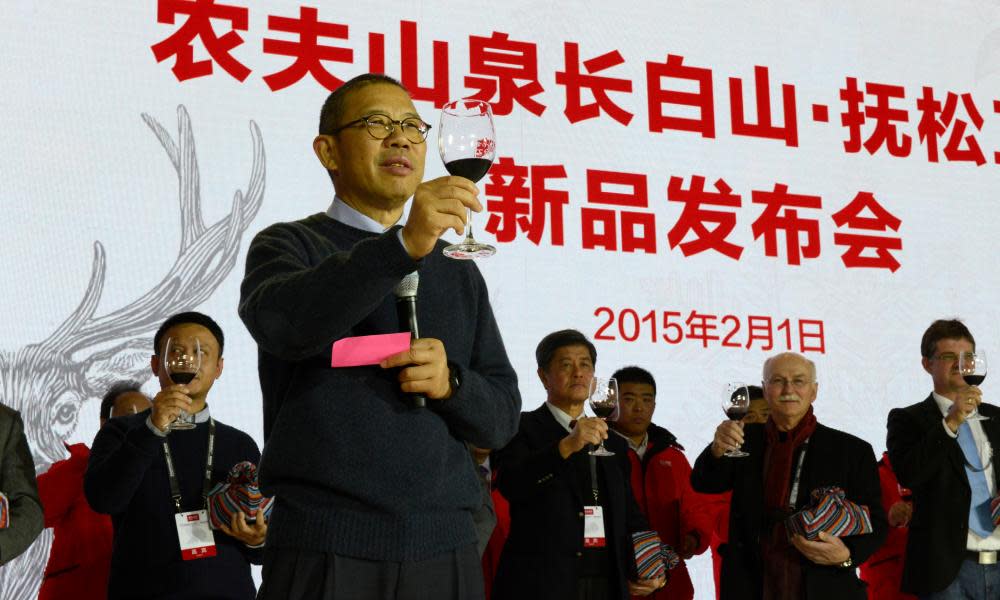Bottled water flotation makes founder China's third-richest man

The stock market flotation of China’s biggest bottle water company has made its founder the country’s third-richest man, as shares in his company rocketed on their debut in Hong Kong.
At one point the paper fortune of Zhong Shanshan, the biggest shareholder in bottled water company Nongfu Spring, briefly surpassed that of China’s two richest men, Alibaba founder Jack Ma and Tencent founder Pony Ma.
Shanshan’s fortune rose by billions after shares in Nongfu Spring surged by 85%, sending his net worth to $59bn (£45bn), more than Jack Ma’s $57bn and Pony Ma’s $52bn, according to Bloomberg estimates.
By the close of the first day trading on the Hong Kong stock market the company’s shares ended more than 50% up, leaving Shanshan with a total net worth of $51bn. The stock market debut of Nongfu Spring, whose red-capped bottles are a common sight at official gatherings across China, is the fourth best ever among firms raising at least $1bn in Hong Kong.
The surge in the company’s stock pushed the value of Shanshan’s 84% stake to $40bn. He also has a stake in Beijing Wantai Biological Pharmacy Enterprise, a maker of Covid-19 test kits, worth $9.4bn. Combined with other cash and assets valued by Bloomberg at $1bn, his total paper fortune is $51bn.
The initial public offering nearly trebled the net worth of Shanshan, a former mushroom grower and journalist who founded the bottle water company in 1996 in the eastern Chinese city of Hangzhou.
The company’s slogan, which translates as “Nongfu tastes a bit sweet” is well known in China and the business has expanded to produce energy drinks and vitamin waters. In 2018, the company was estimated to control a 26% share of China’s $30bn bottled water sector, according to Davie Consulting. Prior to Nongfu Spring’s listing in Hong Kong his fortune stood at just under $19bn.
Shanshan is known as something of a “lone wolf” in business circles in China, due to his relative reluctance to speak to media and the arm’s length relationship he has kept with the Chinese business and political elite.
“I used to be a journalist,” he once said in a rare interview with China Daily. “I know exactly what goes on to the front page.”


